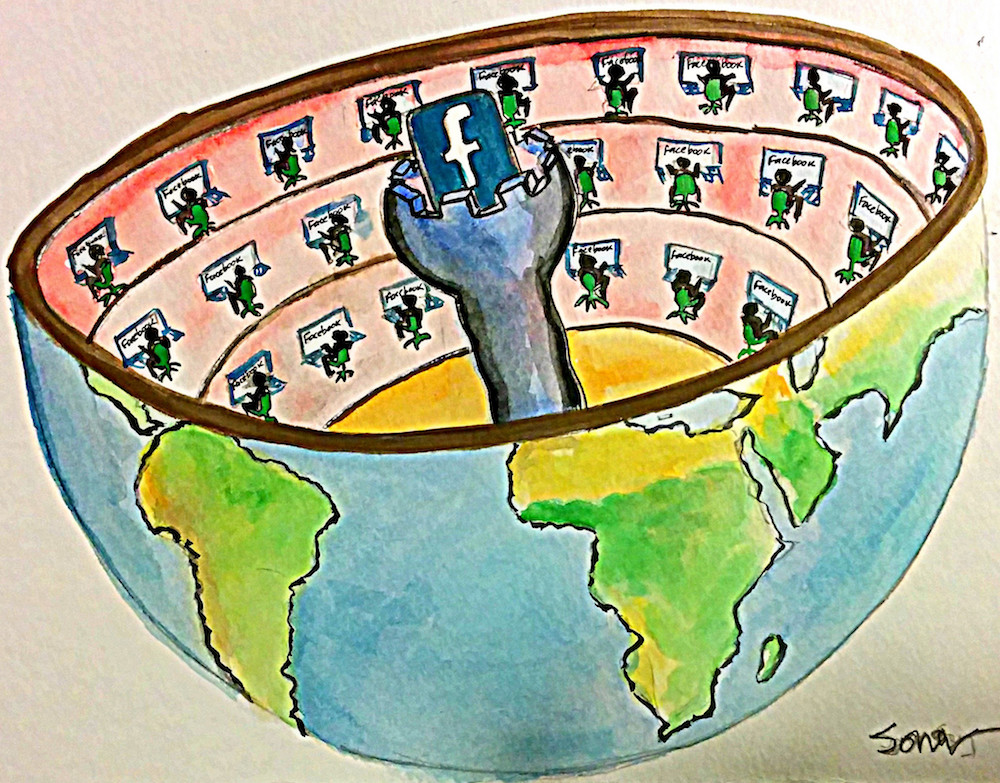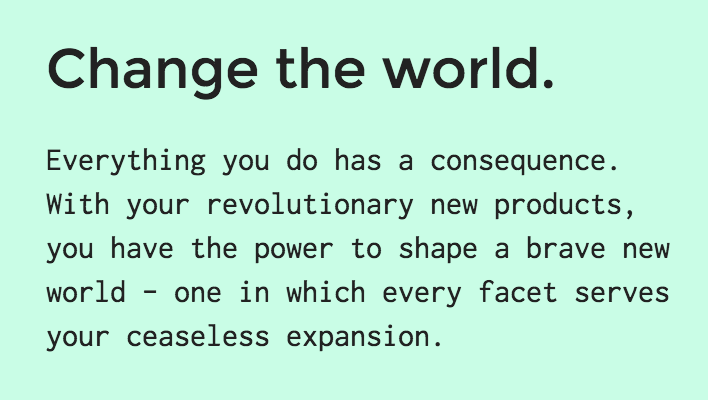The following is an article about cryptocurrencies that I wrote back in February, intended for Mattermark. Right around the same time, Inc. hired me and my editor Alex Wilhelm left Mattermark, so the story got swallowed in the upheaval. I think it’s a decent fit for Exolymph, although the tone is much more impersonal and newsy than my usual dispatches. Anyway, I hope you enjoy this or find it thought-provoking.
Let’s say there’s a cryptocurrency called ExampleCoin, abbreviated as EXC. What would you expect to happen when stories about EXC are published in Coinbase and the mainstream financial press? You might say it depends on the tenor of the stories — are they positive or negative? That should determine how the publicity affects EXC’s price. Or you might say that raising awareness of EXC will be good for the price regardless, because some people who didn’t know it existed will find out, or some people who weren’t paying attention will start.
The influence that media attention has on real cryptocurrencies is less straightforward, regardless of which EXC hypothesis you find most convincing, according to a recent study of five cryptocurrencies. Authors Jean-Philippe Vergne and Sha Wang are associated with the Ivey Business School and economics department at Ontario’s Western University, respectively. Their research was supported by the Scotiabank Digital Banking Lab. Vergne and Wang suggest that media hype may depress the price of Bitcoin and the four other cryptocurrencies they examined.
The researchers explain, “While it has often been assumed that greater visibility in the public sphere, including in the media, would create a buzz affecting cryptocurrency prices positively, our models do not support this idea. To the contrary, we find that a one [standard deviation] increase in public interest […] corresponds to a 10% decrease in returns” (the term “public interest” is quantified in the study). This finding emerged when the researchers controlled for other variables, namely supply growth and liquidity, in an attempt to isolate the effect of media attention. Furthermore, Vergne and Shaw write, “[W]e do not find any evidence that bad press affects price.”
By contrast, Vergne and Wang found that ongoing technological development positively correlates with cryptocurrency returns. The authors hypothesize that greater security, new features, and evidence of a robust technical community that will continue to add to both, are the factors that actually increase the expected practical value of a given cryptocurrency — and thus drive up its price. Vergne and Wang summarize thus:
[T]he innovation potential embedded in technological upgrades is the most important factor associated (positively) with cryptocurrency returns. By contrast, we find that, after controlling for a variety of factors, such as supply growth and liquidity, the buzz surrounding cryptocurrencies is negatively associated with weekly returns.
In a phone interview, Jean-Philippe Vergne pointed out that it doesn’t make sense to expect a cryptocurrency to be valued in the same way as a fiat currency or a commodity like gold. What the US dollar does, in a concrete sense, hasn’t changed in a very long time, and there’s no reason to expect the dollar to develop more “features,” so to speak. Similarly, gold is gold — we can figure out new ways to use it as a material, but the substance itself remains the same. Not so with cryptocurrencies, the structural capabilities of which are always being extended by dedicated development teams.
Vergne acknowledged that this paradigm would lead us to predict that newer cryptocurrencies, with innovative technical approaches and new features, will eventually outpace Bitcoin. He pointed to Ethereum’s trajectory as an example. “People were saying, ‘Okay, in a few months the price of Ethereum will be higher than the price of Bitcoin,’ in terms of the total market cap. A lot of people started to believe that Bitcoin was dead and Ethereum was gonna be the new Bitcoin. Because of its more advanced technology team, it had more potential for future improvement.”
But then a high-profile project called The DAO got hacked, exposing Ethereum’s fundamental technical weaknesses, and the dream came crashing down. (It took a year for Ethereum to reclaim the highs it climbed to in early 2016, which it has now exceeded.) “The code underlying Ethereum was so complex that it had many more flaws than what people imagined, and it was not ready yet for large-scale implementation,” Vergne explained.
Presumably a new cryptocurrency that can excite investors and prove out its potential will not be subject to the same boom-bust oscillation, although Bitcoin’s first-mover advantage is formidable. Bitcoin has the largest number of miners and developers, providing improved cybersecurity and greater liquidity. Its name recognition also far-and-away outstrips the competitors. Up-and-coming cryptocurrencies will be hard-pressed to battle that reputation.
Tony Arcieri, a software engineer at the blockchain network company Chain, discussed the study via Twitter DM. He hopes that Bitcoin and blockchain buzzwords “are past the peak of the media hype cycle.” If so, “true technical merit should hopefully start dominating the reasoning and conversation.” Arcieri emphasized that Bitcoin’s stability, both technically and as a community, will be key to its longterm success, alluding to recent contention over a large technical update.
Joon Ian Wong, a reporter for Quartz who formerly worked at Coinbase, was a little more skeptical of Vergne and Wang’s conclusions. “I think it is accurate to say technical developments increase the value of a crypto in the long run — but its price is still driven by speculators, and media buzz plays a big part in that,” he said in an email.
“It’s analogous to the fundamentals of say a publicly traded company. Ultimately if a company has for instance a strong balance sheet, good cash flows, and strict cost controls of course it’s worth more in the long run. But its stock price is still determined by the vagaries of market rumours, trends among hedge fund managers, and the news cycle.”
In their paper, Vergne and Wang propose that the perception that publicity encourages speculators may actually be what drives reduced returns, writing, “[A] sudden increase in the ‘buzz’ surrounding a cryptocurrency could be interpreted as a signal of increasing volatility. If market participants are risk-averse, given the same expected mean returns, they would be less willing to hold the cryptocurrency if future volatility increases, which would drive prices down and affect returns negatively.”
Angel List partner Parker Thompson remarked on the state of various non-Bitcoin blockchain projects, such as Ethereum and Zcash, “These use cases are still very speculative, and these projects don’t have the maturity of Bitcoin, but my belief is that the market cap of BTC is small enough that it could be wiped out in six months by a true consumer-facing killer app built on top of one of the blockchains I mentioned, or one that does not yet exist.”
Gwern Branwen, an eclectic researcher who has studied Bitcoin in the past, was unimpressed by Vergne and Wang’s study. Branwen responded to a request for comment via Reddit comment:
[T]o sum up my problems with this analysis, the big ones are that it uses an unrepresentative and redundant set of cryptocurrencies, over a short and unrepresentative time period, to investigate a model which ignores all feedbacks and interactions between variables and returns […] to make causal claims which are not and cannot be supported by the model and data, in support of an interpretation […] which lack[s] any face validity[.] Maybe buzz and hype and the media matter a lot less than most people think to Bitcoin’s growth. But this paper doesn’t affect my beliefs on the matter one bit.
Regardless of whether you agree with how Vergne and Wang have manipulated and interpreted the data, it’s important to remember that Bitcoin and its ilk are in fact technologies. Cryptocurrencies resemble standard money — “currency” is right there in the name! — but there’s a lot going on in the code itself, and the community developing that code, that influences how the market will behave.
Header photo by BTC Keychain.











